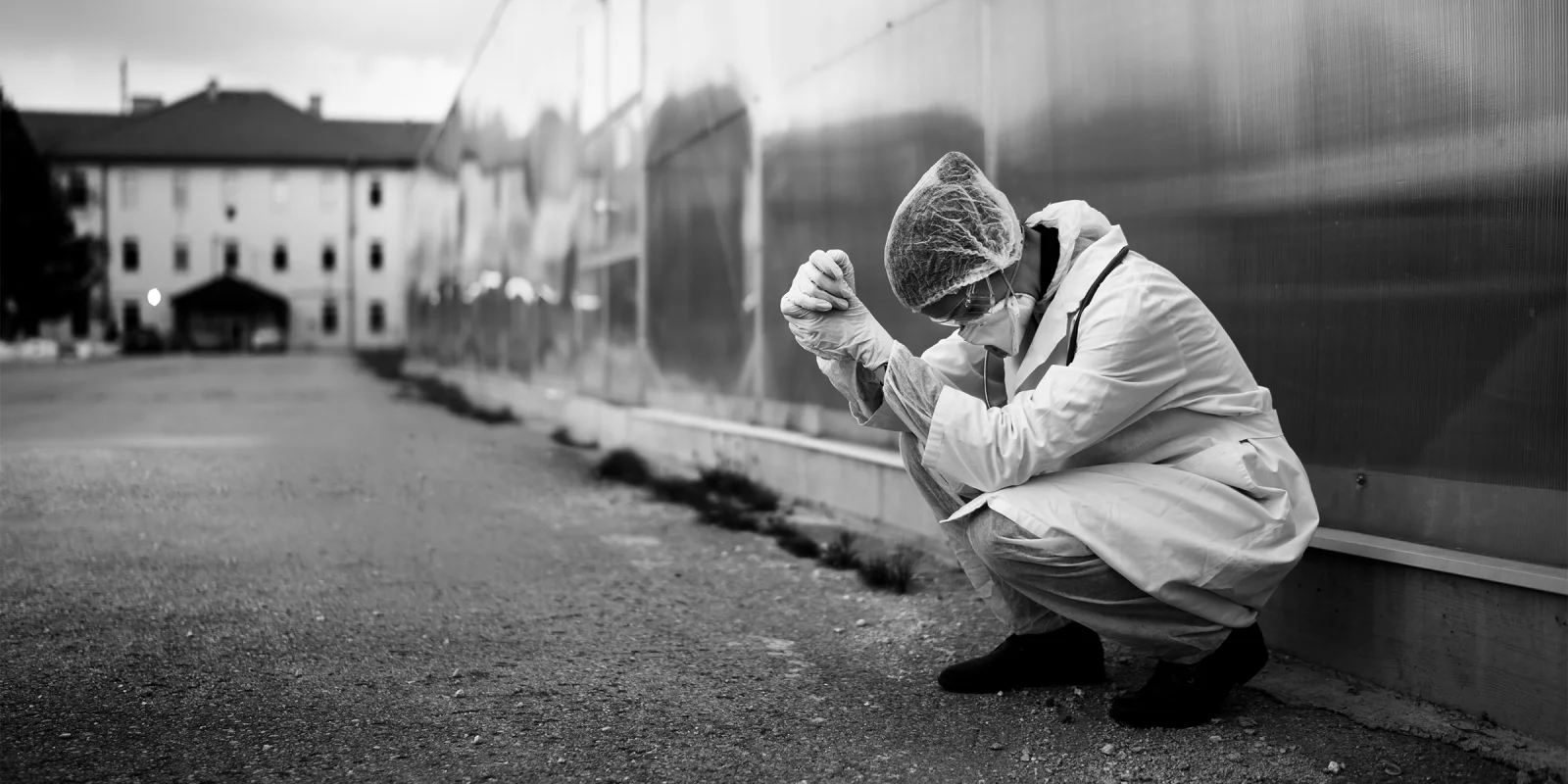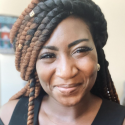She was perched on one of the two chairs at the front desk of the apartment building lobby. There were a myriad of unsorted boxes stacked in front of her. It was a Wednesday afternoon, and I was surprised to see her there, but it was another example — albeit a small one — of how everything had changed in the space of the pandemic, including staff schedules. It was atypical for there to be one individual at the front desk. It was atypical for me to be home on a weekday afternoon. I craved familiarity like the black hijab she wore that was a staple and the way she greeted me with the same upward lilt in her voice.
“Hey AJ.”
I was uncertain whether AJ was an intentional moniker or if she had forgotten my name.
“Let me get your packages, you had a couple arrive today.”
I smiled — it was forced. In the packages were masks that my parents had ordered on my behalf with the anticipation that they would be necessary. I had teased them, but they were right. The other packages had the treasures of a good skin care regimen, delicious books, and clothing items for another time and place. She returned from the backroom and handed the packages to me.
“Here you go, AJ.”
I took the packages. We both lingered in the space. Tethered by the invisible but overpowering desire for human connection. I filled that space. “Life is so weird right now.”
“AJ, it’s crazy. Like I don’t even know if I’m upset or relieved to be considered essential at this point in time.”
We laughed together. It felt like a familiar song — a song that reminds you of the first time you went to Disneyland; a song that fills you with warmth.
“I hear that. Trust me, I hear that,” I said.
“I just have so much on my mind, AJ.” She paused as she regarded my face. It was the pause of consideration — should I share or should I just pretend that I am fine? “You work at Children's Hospital of Philadelphia, right AJ?”
I nodded.
“I was there Friday night. It was hard.”
“Were you? Where were you?”
“They call it 3 South? It’s the floor for on —”
“Oncology,” I finished. I had spent my fair share of time on that unit. As an individual who hoped to pursue a career in hematology-oncology, I loved that space. The nurses and staff on that floor felt like family. I almost said something to that effect, but then I saw her tears. 3 South meant something different to me, as a clinician, and to her, as someone who knew a patient admitted to the oncology service.
“My niece passed away on Friday. She’s my brother’s only child. She was 4.”
I said nothing. I let the words take the space they deserved. There is no good response to that.
“That little bald-headed diva,” her sentence was interrupted with laughter that was not forced but seemed to surprise her. “A nurse that she did not know tried to come into her room and she was like, 'I do not know you, stay out!' She was always like that, you know. So full of energy. So sure of herself. It was hard to believe she was only 4. Kids are so smart.”
“They really are. They’re incredible.”
“You know, AJ, what gets me about 3 South is that the nurses and the doctors were crying harder than any of us when she went. People love their patients. Like, I could really tell that these people cared about my niece. It meant so much to know that they cared. They really fought with her, you know?”
I nodded. That bond that links an oncologist with their patients and families is one of very many reasons that drew me to the field. There’s nothing quite like it.
“We were just surprised. She had a brain tumor. Did chemotherapy and everything. She got worse and then she really got better. Way better. We thought that this was over, and then all of a sudden, she was not acting like herself. She was admitted, and within 48 hours she passed away. We weren’t prepared. My brother was not prepared, but he didn’t cry at all, AJ. You know Black men.”
“Black men don’t cry.”
“Black men don’t cry, especially at times when they need it. He just held her hand. What was beautiful, AJ, was that everyone in the room sang one of her favorite songs when it became clear that she was going to go. She was so loved. She was so loved.”
I reached out my arms, instinctively, and she reached out hers. We looked at one another — both with tears cautiously rolling down our faces. I could tell that she was not the type to cry much, let alone in public, either. I wondered if she was force-fed the mantra that I swallowed: strong Black women don’t cry.
“I’m sorry, AJ.” Our arms dropped as we had the concurrent realization that touch was unsafe. She wiped her tears. My tears speckled the label on my packages.
“You have no reason to be sorry. I can’t imagine your loss. I’m so sorry. And your brother — wow. To lose his only child in the midst of a pandemic and not be able to spend time with his loved ones. I — I — wow. I don’t know what to say.”
“I went to his apartment. I know that’s not social distancing, but he would not answer his phone. He would not answer my calls. He wouldn’t answer my mother’s calls. He wouldn’t answer our sisters’ calls. He answered one of my texts with ‘I’m OK. My boss told me to take time for myself. I just want to go back to work.’ I told him he needs to be at home. He doesn’t need to run around Philadelphia. He doesn’t need to work. He needs to grieve the loss of his only child. He didn’t answer. So I banged on his door. It was like a movie, AJ. He opened the door just a sliver — enough so that I could see his eye. I just needed to make sure he was alive, AJ. He claimed that he could not open the door because of social distancing. So we just talked, palm-to-door, and he promised me he would eat and shower and talk to us. 'You can’t do something like this alone,' I told him. We aren’t built to do this kind of stuff alone.”
“I think it’s beyond OK for you to have seen your brother. He’s isolated and in pain. It’s not a good combination.”
“I just don’t want him to hurt himself.”
“Yeah, I don’t either.”
“But I also don’t want to complain. There are people who have lost their jobs, their homes, everything. It could be worse, a lot worse. I should be grateful.”
I should be grateful.
And I heard her. I had felt that. I felt comfort in the fact that my employment was without question, but I had unprecedented anxiety at work. I felt comfort in the fact that my family members in COVID-19 hotspots had the great privilege to work from home. I felt comfort in the fact that my elders were safe and surrounded by loved ones in Nigeria. I felt comfort in my own health. I stowed my other feelings in the back cupboard.
I should be grateful.
Over time, the stowed-away feelings began to weigh down the cupboard, and it collapsed. The anxiety about my career; the pain of fractured relationships; the disappointment of plans deferred; the gnawing numbness that had settled into my core.
Attempts to outrun emotions are futile. They always catch up.
“It can always be worse, but this is, objectively, a horrendous situation. Show yourself some grace and allow yourself to grieve as well. I appreciate and love that you are looking after your brother, but you had a great loss, too. You lost your niece. You need to grieve as well. Don’t forget about yourself in the process.”
“I haven’t taken much time to think about it honestly.”
“I’m the same way. That’s why I said that.”
The pandemic has stripped us of the false sense of security we all value; we believed the status quo would be unchanged, and we have since struggled with the awareness that quite frankly, nothing will be the same after this. Maybe not even us.
Ajibike is a third year categorical pediatrics resident at Children's Hospital of Philadelphia with a particular interest in global health, advocacy, and hematology-oncology. When not at work, she writes, consumes far too much ice cream, and rebelliously keeps her camera off in Zoom calls.
Image: eldar nurkovic / shutterstock







